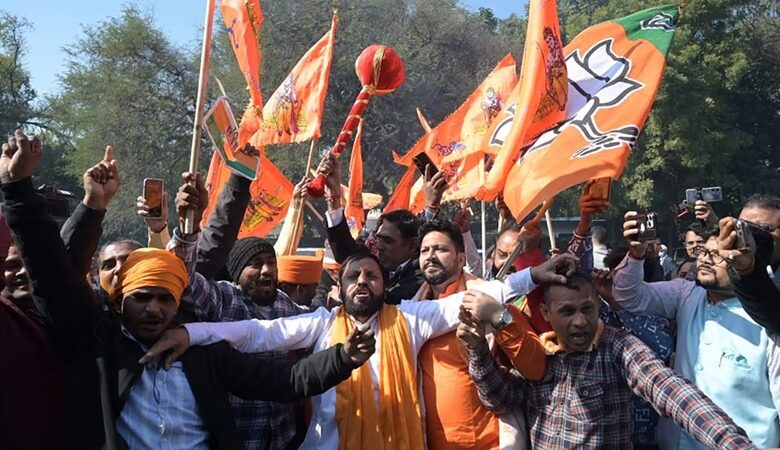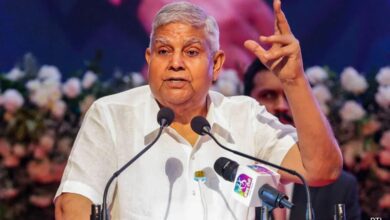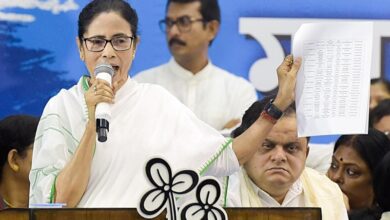Three months of BJP: A dual engine or dual risk administration in Delhi?
News Mania Desk / Piyal Chatterjee / 20th May 2025

The Rekha Gupta administration in the national capital will tomorrow mark three months in office, having taken charge on February 20 this year. In 10 more days, they will reach 100 days in office, which is typically viewed as a suitable period for a government to establish its initial policy and administrative agenda.
The Delhi assembly elections took place amid a strained relationship between the state and the central government, resulting in a halt to administration and governance in the city. The BJP, in its campaign, advocated for a double engine government, meaning a government of the same party at both the Centre and the state.
The ideologues and policy advisors within the BJP have made the double engine the centerpiece of their campaign in the state elections. The rationale for the double engine concept is that when both the state and central governments are from the same party, the state’s development will accelerate significantly. In simple terms, if one governing engine falters, the second will handle the administration.
A brief assessment of the Rekha Gupta government would reveal, on the positive end, the notable execution of the Ayushman Bharat initiative, which provides an extra Rs 5 lakh insurance coverage for residents of Delhi. The government led by Gupta subsequently declared the formation of ‘CM Shri’ schools, in accordance with the National Education Policy, and set aside Rs 100 crore for their establishment.
Currently, the two previously mentioned programmes are part of the front engine, which is the Centre, in the double engine governance model. It’s essential to understand within these 100 days what program the state engine has put into place. The quick response to this would be the prompt declaration of the ‘Mahila Samridhi Yojana’, providing women with Rs 2,500 monthly, backed by an allocation of Rs 5,100 crore.
However, it remains to be seen when the notification and execution of both projects will occur, and the initial pension payment has yet to be credited to the beneficiaries’ bank accounts. The Atal Canteen was also yet to open their doors.
Another significant policy that the new government could regard as its accomplishment is the allocation of Rs 28,000 crore for capital expenditure, focusing on smart expressways and traffic-free corridors. The Delhi Jal Board was allocated Rs 9,000 crore to improve water supply and sanitation, which includes GPS tracking for water tankers to fight corruption. Moreover, Rs 500 crore was allocated for the purification of the Yamuna River, along with proposals to build 40 decentralized sewage treatment facilities.
Nonetheless, as the proverb states, the proof of the pudding is in the eating, suggesting that the true worth of something can only be evaluated through actual experience or outcomes rather than by looks or theory. The actual effect of the Delhi government’s policies will rely on how they are executed and how current obstacles are addressed. The Rekha Gupta administration encountered a hurdle when the special session of the state assembly, intended to introduce and approve the Delhi School Education (Transparency in Fixation and Regulation of Fees) Bill, 2025, was delayed.
This Bill was approved by her cabinet amidst significant controversy over the unprecedented rise in students’ fees at private schools in the national Capital. The HC had also acknowledged the issue, and it was anticipated that the passage of the Bill would lead to the revision of the 52-year-old obsolete regulation regulating private schools.
Though no formal explanation was provided for the delay, whispers among those in authority suggested it was postponed at the Centre’s request to allow for the celebratory march by the public after the triumphant completion of Operation Sindoor. If accurate, this is quite absurd since the state government ought to support the center’s plans and policies but should not pause its own policies to fit the center’s initiatives.
The Gupta administration must devise and implement its own policies and cannot rely on the Centre. They cannot return to individuals asserting recognition for executing the Centre’s policies, as it would amount to political double jeopardy. In legal terms, double jeopardy refers to the principle that an individual cannot be prosecuted or penalized for the same crime more than once. Likewise in politics, two administrations cannot claim credit for executing a single policy.






